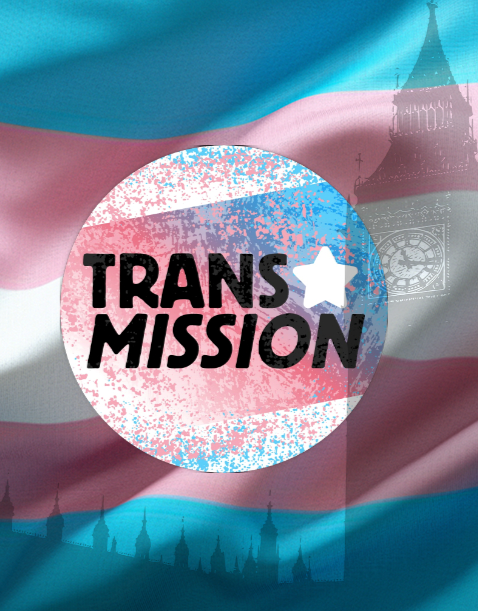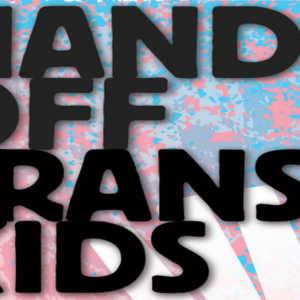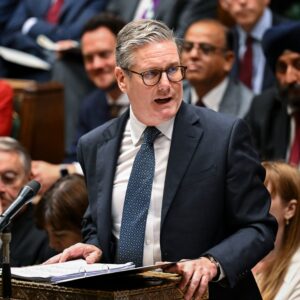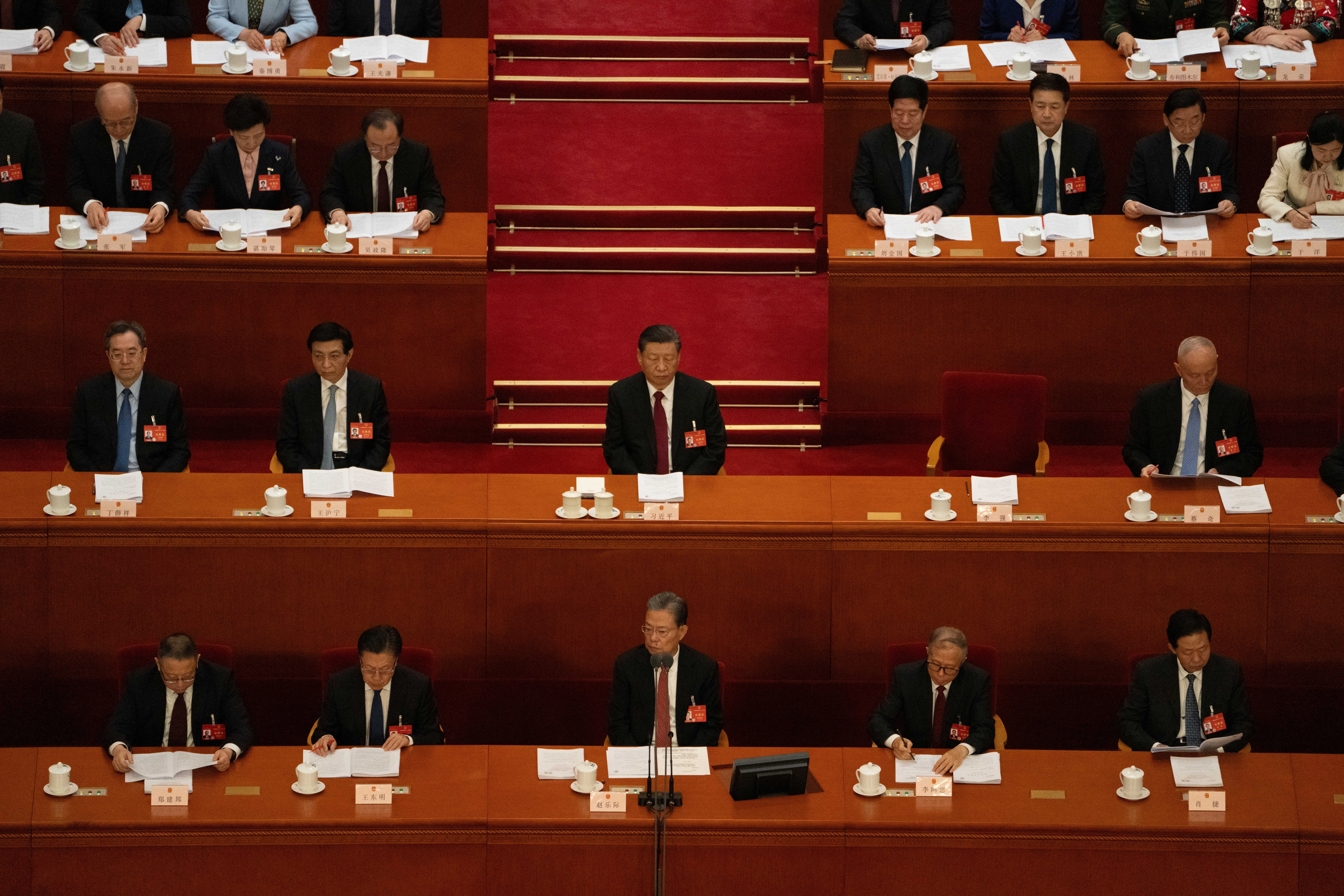A Prejudiced Parliament
In response to two opposing petitions (one a bigoted anti-trans demand to reduce protections for trans people in Equalities legislation, the other a demand to retain them), parliament recently indulged in a heated debate about trans lives. As reported by David Lynch for the Independent, the terms of this discussion were inherently transphobic: i.e., whether transgender people should be permitted to functionally exist in public life (access toilet facilities without humiliation, deserve protections from routine discrimination and harassment, etc.). Few MPs spoke up for their trans constituents; the general tone was appalling.
Included were rants about Aristotle’s notions of equality, which are somehow upset by trans inclusion; an older cishet conservative man whined that he surely doesn’t know anyone who is transphobic; some referred to cis people as “normal”; and trans women were repeatedly framed as predatory and dangerous. But in the topsyturvy world of trans moral panic, such events are seen as polite and exemplary; both chairs proudly congratulated the farce for being civil and respectable. This was despite gender critical attendees being caught mocking suicidal ideation in the transgender community, as reported by Amelia Hansford for PinkNews.
Harriet Williamson, also writing for PinkNews, further showed the depths of hatred that grip the UK’s political establishment. In a video given exclusively to the same outlet, Prime Minister Rishi Sunak is shown making sickening jokes about trans women and genitalia at a party for the 1922 Committee. Nor is the problem exclusively a Tory one, as many of the worst contributors to the aforementioned parliamentary debate belonged to other parties (including Labour’s Rosie Duffield and the SNP’s Joanna Cherry). Writing for the Jacobin, Liam Barrett has explored the extent of Labour’s extensive transphobia problem.
All of this undoes any pretence about the motives of proposed changes to the Equality Act and various other anti-trans legislative attacks, which are rooted in the personal prejudices of a swathe of powerful MPs from across the political spectrum (but especially concentrated and extreme in the Tory Party), rather than political or moral reasoning. The political establishment cannot be trusted to protect trans people, and so doing so must fall to bottom-up coalitions of solidarity.
Cis-picious Pinkwashing
Trans people and those who rally to our struggle have long warned that far from protecting cis-women, anti-trans prejudice is another weapon in the overall arsenal of misogyny, which can be turned on any woman, sexual minority, or gender-diverse person. (And in some circumstances, when they stray from gender’s parameters, even cisgender heterosexual men.)
The creeping impact of transphobia has been demonstrated in a Canadian track-and-field kid’s game, when a man humiliated a 9-year-old cis girl, accusing her of being trans and demanding she be inspected—as reported by Amanda Lee Myers for USA Today. Also reflecting on the incident, the Guardian columnist Arwa Mahdawi made a powerful observation on what this says about the nature of transphobia:
Nobody should need to be convinced to care about trans people’s rights. Nobody should need to be convinced that trans rights and gay rights and women’s rights are all inextricably intertwined. But if you do need convincing then I hope you can look at that story from a kids’ sports event in Canada and realize that this panic over trans people isn’t neatly confined to the trans population. Unless you fit the very narrow specifications of what conservatives think a woman looks and acts like, they are going to come for you too.
Canada is not where such antics might be expected; it runs against the nation’s cultivated reputation for liberal progressivism. But nations are all predisposed to hide their tensions and contradictions behind nationalist veneers, sometimes of jingoistic unity, and others of being exceptionally accepting. Canada might do better on various metrics than its infamous neighbour, but, for example, in its treatment of indigenous peoples (including gender-diverse indigenous people), it has plenty to hide. Nor, as this case proves, is it immune to any of the meanest prejudices.
Likewise, while Israeli governments often claim to be unique in the region for protecting queer people (a strategy dubbed pinkwashing by critics), the reality is all too often grim. Reporting for +972 Magazine, Sharona Weiss looks at the story of a Palestinian trans woman to showcase how hollow it is for the regimes’ agitprop to boast of the inclusion and acceptance of queer humanity when so much of the State’s daily running depends on denying the humanity of all Palestinians as well as routinely failing LGBTQIA+ people.
Having been rejected by her family and community, the woman (who goes by MC) talks of layers of structural violence and a nightmare bureaucracy in which her multiple subaltern statuses are frequently weaponised. In particular, it has been hard for her to claim any autonomy, including to work, rendering her powerless in a context where she must contend with various caricatures of her national and gender identities. If transphobia is the natural bedfellow of misogyny, it is also no stranger to racism. Nor, as we shall see, disablism.
Abandoned and Scammed
A large part of the discrimination faced by transgender people relates to access to transition healthcare. A consequence of this is that trans people find ourselves uniquely vulnerable to bad-faith actors seeking to predate on our desperation. Chloe Xiang for Vice News, and Kerrick Goodman-Lucker for Assigned media, have written on a particular odious case involving a fake “estrogen-alternative” being briefly advertised on Twitter by a then-verified account. The drug involved was not only ineffective but dangerous and potentially even lethal.
The answer to this, the only way to protect trans people, is to remove barriers to medical care. Sadly, however, we find the opposite in the US, Israel, Russia, Poland, Hungary, Japan, etc. Healthcare system after healthcare system is unconcerned with harm reduction when it comes to trans lives, content to allow a vulnerable minority to be hyper-exposed to death-dealing grifters in order to fuel a myopic culture war.
Regarding medical autonomy, the fake drug story relates to another case in the UK, which is the focus of an open letter by Trans Safety Network (TSN). This involves “a legal action being undertaken by the parent of an adult autistic trans person [who] is seeking to block an elective procedure the autistic adult has consented to.” TSN has noted that this is not only an attack on transgender people but also violates fundamental principles related to the rights of disabled people, expressly contained in the Mental Capacity Act 2005.
Moreover, they have noted that the action is being pursued by far-right and religious extremist solicitor Paul Conrathe, who also attempted to undermine Gillick competency in the Bell v Tavistock case. Conrathe has a record taking on anti-abortion cases, too, and his track record of using courts to oppose bodily autonomy for trans and disabled people, as well as in reproductive healthcare, can at least be said to be a very clear demonstration of how such struggles are inseparably intertwined.
A*CR Activities
Anti*Capitalist Resistance and many A*CR members are now signatories of the TSN open letter, and we would urge anyone reading to sign and promote it, too. From our founding, we have recognised that different liberatory struggles are not in competition with each other but that the fight for human freedom is the fight against a single inhuman social system that manifests in various instances of human degradation. We neither collapse struggles into a single abstraction nor treat any struggle as unrelated to the social totality. In essence, this is the theoretical basis of solidarity.
–
Want to participate in the fightback? Join Anti*Capitalist Resistance and become a member of our Trans*Mission group!
Art (47) Book Review (102) Books (106) Capitalism (64) China (74) Climate Emergency (97) Conservative Government (90) Conservative Party (45) COVID-19 (43) Economics (36) EcoSocialism (48) Elections (75) Europe (44) Fascism (52) Film (47) Film Review (60) France (66) Gaza (52) Imperialism (95) Israel (103) Italy (42) Keir Starmer (49) Labour Party (108) Long Read (38) Marxism (45) Palestine (133) pandemic (78) Protest (137) Russia (322) Solidarity (123) Statement (44) Trade Unionism (132) Ukraine (324) United States of America (120) War (349)
Latest Articles
- France after the elections: How should the radical left act?In the wake of the National Assembly’s dissolution and new parliamentary configuration, La France Insoumise (LFI) should adopt a clear stance of radical opposition, emphasizing its commitment to anticapitalist principles and democratic reforms while avoiding any compromise with the existing government unless it secures absolute majority support from the populace, argues Gilbert Achcar.
- Why Socialists Oppose the Two‑Child Welfare CapIn this article, Simon Hannah explores why socialists vehemently oppose the government’s two-child welfare cap, arguing that it stems from austerity measures and reactionary views on the poor.
- Hands off Trans KidsA pamphlet from Anti*Capitalist Resistance.
- Two Child Benefit RevoltDave Kellaway responds to the revolt by Labour MPs and others to the Labour government keeping the Tories’ hated two child benefit cap.
- The beginning of the end of China’s rise?This is the second interview in a two-part series. The first interview (“Opposing US militarisation in the Asia-Pacific should not mean remaining silent on China’s emerging imperialism“) covered the nature of China’s state, its status in the world today, and implications for peace and solidarity activism.







